The Irish AI industry is on a strong growth curve.
The price of an AI straw costs upwards of €18 in the Republic of Ireland and £15 in Northern Ireland.
More and more farmers are using AI and those using AI have bigger and bigger herds.
Genomic sires, that once given their age would have been classed as test sires, are now hitting semen production much earlier using new technologies.
The Sunny Boy effect – the days of one sire dominating the world – are long gone
This means young bulls are making money sooner than they ever were in the past.
The Sunny Boy effect – the days of one sire dominating the world – are long gone. Now, there are lots of Sunny Boys as farmers are urged to use teams of sires.
The net result is more AI-bred calves than ever before appearing on Irish farms each spring. Between first inseminations and repeats, let’s estimate between 1.8m and 2m straws are sold between the North and Republic of Ireland.
Again let’s estimate a retail price of €15 per straw. That’s a good bit under the real retail price, but I’ve tapered it back to allow for lower value repeats, test bull costs, losses and international sales at lower prices, etc. On the face of it, that’s a €27m to €30m annual investment by farmers in breeding better, more efficient stock.
So where is the money going? Let’s scratch the surface. The big player in the Irish breeding game is the National Cattle Breeding Centre (NCBC). It is a joint venture set up in 2005 between Munster Bovine and Progressive Genetics. Bernard Eivers is the CEO and it has about 29 employees.
As I understand it, effectively NCBC gets so much per straw produced from its parent companies and using these funds it has to run the bull studs and the semen collection business.
NCBC board members are made up of representatives from both Progressive Genetics and Munster Bovine. NCBC is 50% owned by Progressive Genetics, with the balance of the ownership representing Munster Bovine; 20% Castleisland Cattle Breeding Society, 20% Dairygold Co-op and 10% Shinagh Estates (West Cork).
NCBC was set up to buy young test bulls, rear them and deliver high-quality, high-index semen to Munster and Progressive.
While the word “national” in the name suggests it caters for all Irish AI stations, it doesn’t. Dovea AI, Eurogene, LIC (NZ), Bova AI and AI Services Northern Ireland, along with other smaller entities, all sit outside this structure.
Industry estimates suggest NCBC has over 60% of the overall semen business with its annual report showing about 66% of its sales are in Ireland, 23% in the UK and the wider EU, and the balance to South America, Asia and Australia.
The latest financial accounts of the NCBC published in December show that to the end of December 2020, turnover was €4.8m, up from €4.35m the year previous.
However, it reported a loss for the financial year after tax of €204,268. In 2019, the equivalent profit figure was more positive at €186,416.
It’s clear that the boom profits are not being made in NCBC. If we go back 10 years ago, NCBC 2012 accounts show it was making more money back then. The 2012 turnover was €2.57m and profit after tax was €570,000.
The board of NCBC is mostly farmers with some executives from the parent companies, Munster and Progressive. In the last two years, there has been huge change at NCBC board level.
I’m also told that in the last year there were very few actual NCBC board meetings as there was significant discontent between both AI companies over a number of sensitive issues.
We have to look a little deeper to the parent companies to see where the profits are going. Progressive Genetics Co-operative is involved in semen sales through two subsidiary companies, Progressive Genetics Ireland Limited and Rowler Limited. It is milk testing through Independent Milk Laboratories and in farm management software through Irish Farm Computers.
NCBC accounts show it sold produce (semen) to the value of €1.58m to Progressive Genetics Ireland Limited. It also made sales to the value of €1m to Rowler Limited (a 100% subsidiary of PG).
Abridged accounts to December 2020 for Rowler Limited show it has two directors: Kildare dairy farmer Vincent Gorman appointed January 2020 and Brendan Scanlon, CEO of Progressive Genetics. It has an admin staff of 39 people.
Its abridged accounts were authorised in May 2021. It has net current assets of €5.4m, of which €4.6m is cash at bank and in hand. Total assets less current liabilities are €6.99m.
The Rowler business is growing. In 2010, Rowler had net current assets of €4m of which €2.45m was cash at bank and in hand. Total assets less current liabilities in 2010 were €4.1m. Looking at these numbers, Rowler is doing good business and has a healthy bank account.
The other company that NCBC sell semen to for retail to farmers is Progressive Genetics Ireland Limited.
Progressive Genetics Ireland Limited again is a subsidiary of Progressive Genetics Co-op.
The most recent abridged accounts for Progressive Genetics Ireland Limited show it has net assets of €2.2m, with purchases of close to €1.7m from NCBC.
The other shareholder of NCBC is collectively called Munster Bovine, but technically the shareholding is owned 20% Castleisland Cattle Breeding Society, 20% Dairygold Co-op and 10% Shinagh Estates (West Cork Co-ops).
Again, the directors of Munster are the only individuals to see the accounts of Munster Bovine so we don’t have visibility of profits.
Munster Bovine is involved with semen sales, milk recording and herd health services.
The recently appointed boss at Munster Bovine is Doreen Corridan and they are based out of Ballyvorisheen, near Mallow, Co Cork.
Similar to Progressive Genetics, the latest NCBC accounts show it made sales of €2.3m to Munster Cattle Breeding Group, so this is the semen that Munster takes to the market.
We know that Munster Bovine has been investing heavily in technology and farm software.
NCBC is run on a shoe string with little financial surplus for reinvestment.
AI companies deserve profits and reserves, but directors must think of the next five years for shareholders.
A fragmented Irish AI industry needs investment for long-term return. There are signs that the industry is being passed out by other countries.Breeding better animals to improve the sustainability of farming
The livestock industry is being challenged to up its game. Breeding is one way it can improve further. Breeding better animals is one of the potential tools to improve the sustainability of farming in Ireland. In the last 20 years, huge successful strides have been taken.
So, how are we set up for the next 10 years and where is the investment going?
Farmers have a hand on the steering wheel through their co-operatives so there should be less reason to blame anyone else.
From what we can see, the AI companies are financially strong. However, as an industry, it is fragmented and we see divisions appearing within existing partnerships and existing entities.
We see entities investing to diversify income streams. Nobody begrudges the AI industry profits or reserves. However, we need to call out as an industry that we haven’t yet started breeding a cow that produces less methane.
As an industry, we haven’t invested enough recently in milk recording and upgrading technology with antimicrobial resistance and selective dry cow therapy knocking on the door. As an industry we haven’t grasped sexed semen with arguments over where the national laboratory should be and what external partner should be involved. The Department of Agriculture funds ICBF with grant aid of about €1m. It also funds Teagasc breeding activities (part of the Teagasc grant aid of €134m). On top of that, it funds farmers directly with schemes such as BDGP, BEEP, etc.
Fund
All of this and yet we haven’t a national farmer investment fund to start investing in any of the three projects mentioned above. Is it time to set aside €1 in every straw of semen purchased for future investment projects that we need to deliver now?
Are farmers spending €30m annually, with some organisations subsidised by the Department and yet not getting what they need?
The Irish AI industry is on a strong growth curve.
The price of an AI straw costs upwards of €18 in the Republic of Ireland and £15 in Northern Ireland.
More and more farmers are using AI and those using AI have bigger and bigger herds.
Genomic sires, that once given their age would have been classed as test sires, are now hitting semen production much earlier using new technologies.
The Sunny Boy effect – the days of one sire dominating the world – are long gone
This means young bulls are making money sooner than they ever were in the past.
The Sunny Boy effect – the days of one sire dominating the world – are long gone. Now, there are lots of Sunny Boys as farmers are urged to use teams of sires.
The net result is more AI-bred calves than ever before appearing on Irish farms each spring. Between first inseminations and repeats, let’s estimate between 1.8m and 2m straws are sold between the North and Republic of Ireland.
Again let’s estimate a retail price of €15 per straw. That’s a good bit under the real retail price, but I’ve tapered it back to allow for lower value repeats, test bull costs, losses and international sales at lower prices, etc. On the face of it, that’s a €27m to €30m annual investment by farmers in breeding better, more efficient stock.
So where is the money going? Let’s scratch the surface. The big player in the Irish breeding game is the National Cattle Breeding Centre (NCBC). It is a joint venture set up in 2005 between Munster Bovine and Progressive Genetics. Bernard Eivers is the CEO and it has about 29 employees.
As I understand it, effectively NCBC gets so much per straw produced from its parent companies and using these funds it has to run the bull studs and the semen collection business.
NCBC board members are made up of representatives from both Progressive Genetics and Munster Bovine. NCBC is 50% owned by Progressive Genetics, with the balance of the ownership representing Munster Bovine; 20% Castleisland Cattle Breeding Society, 20% Dairygold Co-op and 10% Shinagh Estates (West Cork).
NCBC was set up to buy young test bulls, rear them and deliver high-quality, high-index semen to Munster and Progressive.
While the word “national” in the name suggests it caters for all Irish AI stations, it doesn’t. Dovea AI, Eurogene, LIC (NZ), Bova AI and AI Services Northern Ireland, along with other smaller entities, all sit outside this structure.
Industry estimates suggest NCBC has over 60% of the overall semen business with its annual report showing about 66% of its sales are in Ireland, 23% in the UK and the wider EU, and the balance to South America, Asia and Australia.
The latest financial accounts of the NCBC published in December show that to the end of December 2020, turnover was €4.8m, up from €4.35m the year previous.
However, it reported a loss for the financial year after tax of €204,268. In 2019, the equivalent profit figure was more positive at €186,416.
It’s clear that the boom profits are not being made in NCBC. If we go back 10 years ago, NCBC 2012 accounts show it was making more money back then. The 2012 turnover was €2.57m and profit after tax was €570,000.
The board of NCBC is mostly farmers with some executives from the parent companies, Munster and Progressive. In the last two years, there has been huge change at NCBC board level.
I’m also told that in the last year there were very few actual NCBC board meetings as there was significant discontent between both AI companies over a number of sensitive issues.
We have to look a little deeper to the parent companies to see where the profits are going. Progressive Genetics Co-operative is involved in semen sales through two subsidiary companies, Progressive Genetics Ireland Limited and Rowler Limited. It is milk testing through Independent Milk Laboratories and in farm management software through Irish Farm Computers.
NCBC accounts show it sold produce (semen) to the value of €1.58m to Progressive Genetics Ireland Limited. It also made sales to the value of €1m to Rowler Limited (a 100% subsidiary of PG).
Abridged accounts to December 2020 for Rowler Limited show it has two directors: Kildare dairy farmer Vincent Gorman appointed January 2020 and Brendan Scanlon, CEO of Progressive Genetics. It has an admin staff of 39 people.
Its abridged accounts were authorised in May 2021. It has net current assets of €5.4m, of which €4.6m is cash at bank and in hand. Total assets less current liabilities are €6.99m.
The Rowler business is growing. In 2010, Rowler had net current assets of €4m of which €2.45m was cash at bank and in hand. Total assets less current liabilities in 2010 were €4.1m. Looking at these numbers, Rowler is doing good business and has a healthy bank account.
The other company that NCBC sell semen to for retail to farmers is Progressive Genetics Ireland Limited.
Progressive Genetics Ireland Limited again is a subsidiary of Progressive Genetics Co-op.
The most recent abridged accounts for Progressive Genetics Ireland Limited show it has net assets of €2.2m, with purchases of close to €1.7m from NCBC.
The other shareholder of NCBC is collectively called Munster Bovine, but technically the shareholding is owned 20% Castleisland Cattle Breeding Society, 20% Dairygold Co-op and 10% Shinagh Estates (West Cork Co-ops).
Again, the directors of Munster are the only individuals to see the accounts of Munster Bovine so we don’t have visibility of profits.
Munster Bovine is involved with semen sales, milk recording and herd health services.
The recently appointed boss at Munster Bovine is Doreen Corridan and they are based out of Ballyvorisheen, near Mallow, Co Cork.
Similar to Progressive Genetics, the latest NCBC accounts show it made sales of €2.3m to Munster Cattle Breeding Group, so this is the semen that Munster takes to the market.
We know that Munster Bovine has been investing heavily in technology and farm software.
NCBC is run on a shoe string with little financial surplus for reinvestment.
AI companies deserve profits and reserves, but directors must think of the next five years for shareholders.
A fragmented Irish AI industry needs investment for long-term return. There are signs that the industry is being passed out by other countries.Breeding better animals to improve the sustainability of farming
The livestock industry is being challenged to up its game. Breeding is one way it can improve further. Breeding better animals is one of the potential tools to improve the sustainability of farming in Ireland. In the last 20 years, huge successful strides have been taken.
So, how are we set up for the next 10 years and where is the investment going?
Farmers have a hand on the steering wheel through their co-operatives so there should be less reason to blame anyone else.
From what we can see, the AI companies are financially strong. However, as an industry, it is fragmented and we see divisions appearing within existing partnerships and existing entities.
We see entities investing to diversify income streams. Nobody begrudges the AI industry profits or reserves. However, we need to call out as an industry that we haven’t yet started breeding a cow that produces less methane.
As an industry, we haven’t invested enough recently in milk recording and upgrading technology with antimicrobial resistance and selective dry cow therapy knocking on the door. As an industry we haven’t grasped sexed semen with arguments over where the national laboratory should be and what external partner should be involved. The Department of Agriculture funds ICBF with grant aid of about €1m. It also funds Teagasc breeding activities (part of the Teagasc grant aid of €134m). On top of that, it funds farmers directly with schemes such as BDGP, BEEP, etc.
Fund
All of this and yet we haven’t a national farmer investment fund to start investing in any of the three projects mentioned above. Is it time to set aside €1 in every straw of semen purchased for future investment projects that we need to deliver now?
Are farmers spending €30m annually, with some organisations subsidised by the Department and yet not getting what they need?




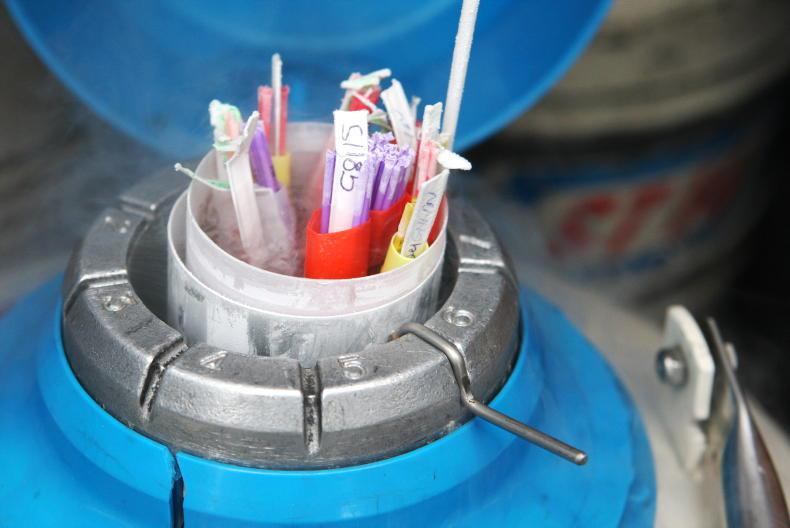
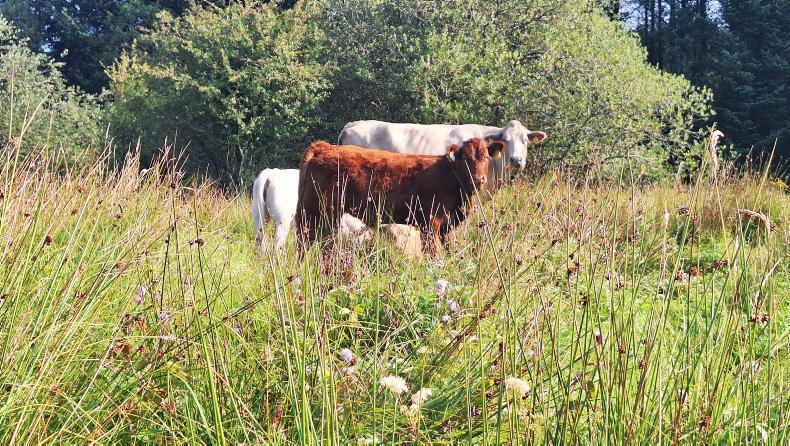

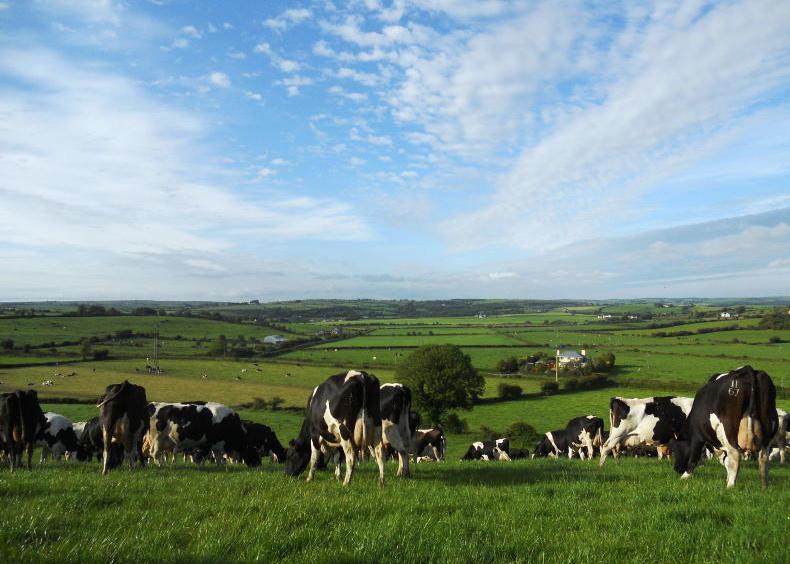
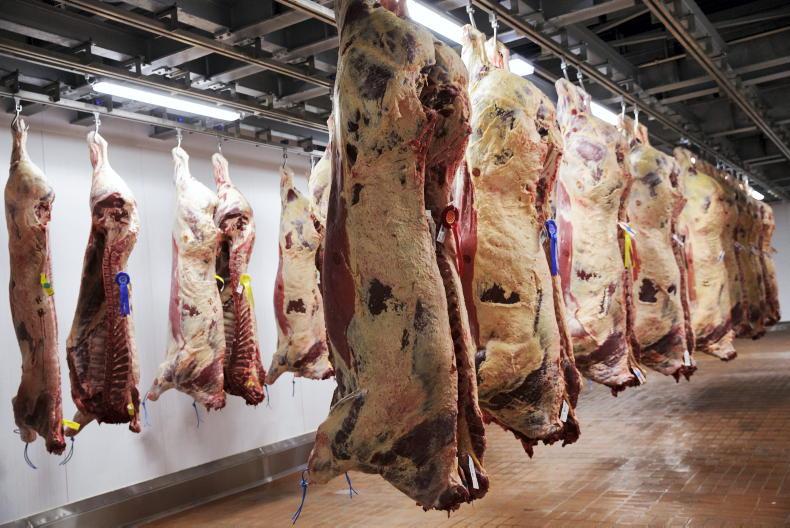
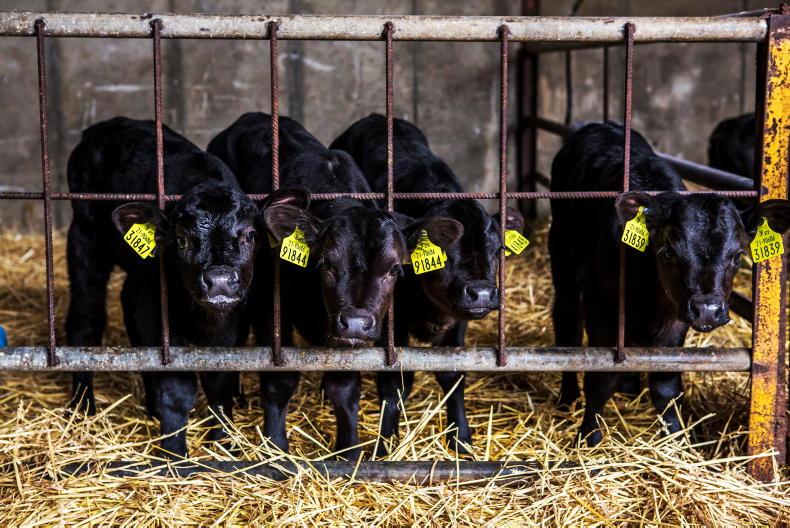
SHARING OPTIONS